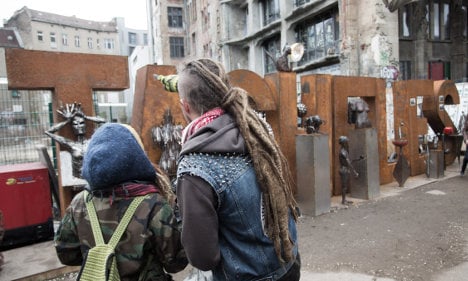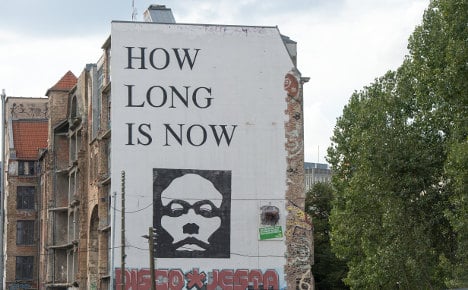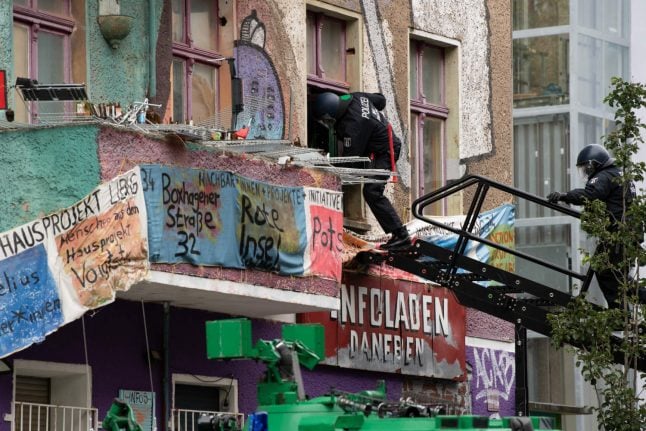P { margin-bottom: 0.08in; }
The five-storey Tacheles building, which was a magnet for tourists until its closure in 2012, was sold by the German Jagdfeld group to the New York-based Perella Weinberg Partners, reports said.
The dilapidated, graffiti-covered building will be renovated and turned into apartments and shops, and new buildings will be added at the site.
There are also plans to stage cultural activities at the former department store.
"We are pleased to wake this site from its slumber and begin a new chapter here," Leon Bressler, a spokesman for the US fund, was quoted as saying by the Berliner Zeitung. "We're convinced of the potential of the German capital."
He added that the project would "create a new attraction" in the capital's Mitte district, in former East Berlin.
Young artists flocked to East Berlin after the fall of the Wall in 1989, drawn by the low cost of living, and squatted or moved their workshops into disused buildings.

The huge Tacheles building, which stretches over 1,250 square metres (13,454 square feet), was first taken over by squatters in 1990 and accommodated dozens of artists.
At its peak, the remnants of the 1909 department store housed a cinema, theatre, restaurant and bar as well as artists' studios and galleries.
The colourful site became a popular tourist attraction and nightspot, drawing some 400,000 visitors a year.
The site was bought by Jagdfeld group in 1998 and was rented for a token €1 until 2008.
But the beginning of the end came that year when administrators HSH Nordbank began demanding market rates in rent, pushing the association into bankruptcy.
The last artists were evicted in 2012 without resistance, though they did stage a protest by playing a funeral march ahead of the police's arrival.
SEE ALSO: Berlin's squats are at your service



 Please whitelist us to continue reading.
Please whitelist us to continue reading.
Member comments